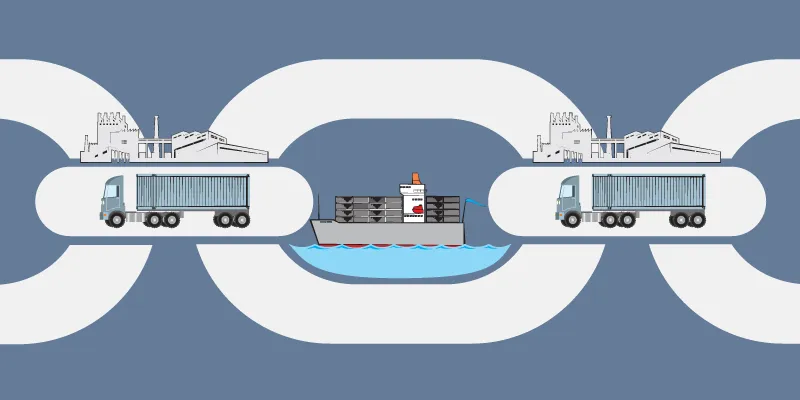3 keys to developing a sustainable supply chain
For any business to achieve long-term success, the creation of sustainable supply chains is mandatory. It's essential in today's world where human rights issues, environmental changes, and climate fluctuations are a real risk to effective supply chain management. Waste needs to be reduced significantly and drastically. One way to do this is by establishing strong relations with manufacturers. There are other, more comprehensive ways for companies looking to develop a sustainable supply chain. Here's how it can be done:

Image : shutterstock
Outline and segment your supply chain
In order to map and segment your supply chain efficiently, you need to start by fully understanding the unique challenges your organisation and your suppliers have encountered so far. Once you are able to pin-point the challenges, you'll need to locate your primary suppliers and trace the flow of information, supplies, and services. Some criteria that may come in handy for prioritising suppliers include the importance of business progression, the level of spending, and geography as a proxy for risk. For example, if your company's mission statement is about discovering the world, it will help if your company takes initiatives to be environmentally friendly. If there are any human rights or environmental red flags, understand the risks involved and adjust accordingly.
Inform your shareholders about your vision
From customers to suppliers, entrepreneurs should take the efforts to clearly represent the company's vision to everyone involved. Don't let there be room for any chinks in the sustainable supply chain. Everyone has the right to know what they are manufacturing or purchasing. The simplest way to do this is to make your vision crystal clear not just to the executive employees of your organisation, but to every employee and entity involved. However, this is only possible if you have an accurate image of the supply chain itself. In addition, you need to give your employees the freedom to do their jobs without interfering and controlling every step of the process.
Join hands with other business leaders
Cultivating sustainable supply chains includes complicated issues and intricate connections. Tackling specific features and aspects all by yourself may hamper your capacity to reach your objectives. Collaborating with other business leaders can help you save precious time and resources and can also increase your productivity. There are several reasons for business leaders to join forces to cut-down waste, corruption, and human rights violations beyond the obvious ethical and moral arguments. Sharing best practices can enable different businesses to lay-down guidelines for implementing their supply chain improvements. Industry collaborations can also make way for smaller companies to join forces with larger ones, boosting their sustainability efforts. When an entire industry's sustainability efforts are strengthened, it benefits each company within that industry individually as well.
Doing business with wasteful suppliers can have adverse effects on a company's bottom line and customer trust. Adjusting your supply chain is difficult, but crafting a vision statement, mapping your supply chain, and joining forces with industry leaders should make the change simpler.







